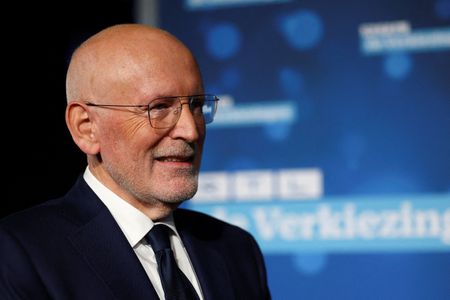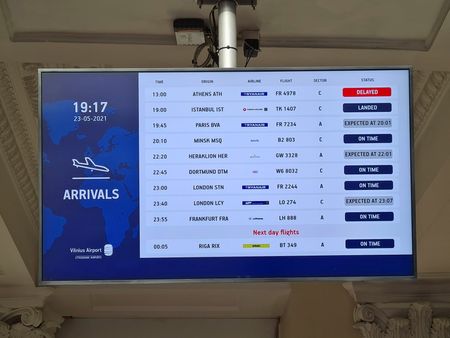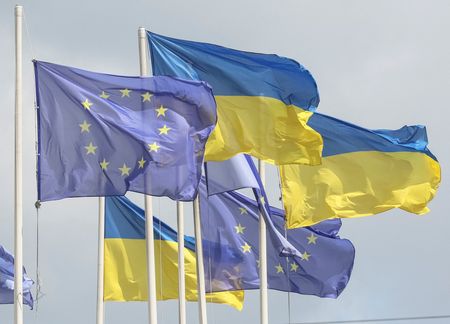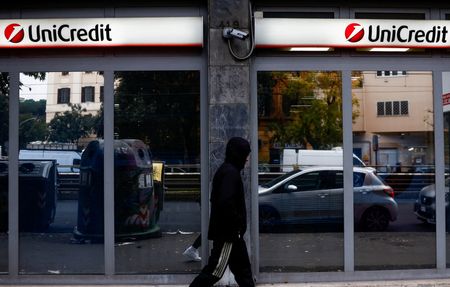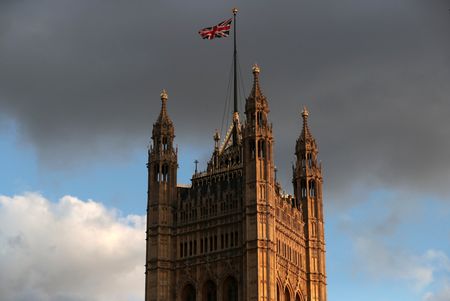By Toby Sterling
AMSTERDAM (Reuters) -A national election in the Netherlands next week presents voters with a choice between doubling down on far-right leader Geert Wilders to stop immigration, or turning to his centrist rivals to address their concerns about housing and security.
With nationalist parties topping polls in Britain, France and Germany, the Dutch vote on October 29 is a test of whether European populism can expand its reach or has already peaked.
Wilders, a bleach blond admirer of U.S. President Donald Trump, led his party to a stunning first place finish in the 2023 election and formed an all-conservative coalition – although his partners balked at making him prime minister.
He collapsed the government in June over its refusal to adopt hardline anti-refugee measures.
WILDERS’ FIRST GOVERNMENT SEEN AS A FLOP
Dutch elections have become increasingly unpredictable and, with confidence in government at pandemic-era lows, half of voters are still undecided.
“All kinds of things are being promised that, in my opinion, are completely impossible. And that means I still don’t know who I’m going to vote for,” said Jack Veerman, 62, a painter in the city of Volendam, a traditional Wilders stronghold.
The previous government is widely seen as ineffective. It did not deliver on its signature promise of introducing Europe’s toughest immigration regime, nor did it address a national housing shortage or resolve a dispute over nitrogen emissions that has hampered construction and angered farmers.
With economic growth falling toward zero and unemployment creeping up, most voters think the country is heading in the wrong direction, the country’s Institute for Social Research said on Monday.
“People think politicians accomplish too little and are mainly preoccupied with themselves,” it said.
POLLS SHOW WILDERS LOSING GROUND
While Wilders’ Freedom Party leads in the polls, it has seen some of its seats siphoned away by the Christian Democrats, whose new leader Henri Bontenbal is campaigning on stability and traditional values.
Analysts and rivals say that Wilders’ decline reflects voter frustration over what Bontenbal termed “two years of chaos” under the last coalition. The Christian Democrat leader has ruled out ever working with Wilders.
That creates a dilemma for right-leaning voters.
Even “if Wilders gets most votes and most seats in parliament, he will probably not get into the coalition” said University of Amsterdam electoral politics professor Henk van der Kolk, as leftist parties also won’t work with Wilders.
This may push some Wilders supporters to vote tactically for other conservative parties to ensure their voice is heard in the next government.
Currently polling second is the Labour-Green Left Party led by former EU Vice President Frans Timmermans, seen as vying with Bontenbal to become the country’s next prime minister.
IMMIGRATION MATTERS
Wilders, one of Europe’s longest-serving populist leaders, is best-known for his anti-Islam stances, and lives under constant protection due to death threats. He argues the Netherlands should deny all requests for political asylum, using the army to guard borders if necessary.
“Let other countries do more for once, the Netherlands can’t take it any more, and there’s a lot of protest” against asylum-seekers, Wilders said on a talk show Friday, his first campaign appearance.
Similar proposals failed to win support from partners in his previous coalition amid doubt over whether they were legal under Dutch law or international treaties.
Mainstream parties have accepted there is strong opposition among many Dutch to accepting more migrants, especially from non-Western countries, and are trying to win votes with solutions they say are realistic.
The Christian Democrats favor swifter rejections of asylum requests, while Timmermans argues for an EU-coordinated approach.
“We can take back control of this issue in a way that is compatible with our fundamental values, ” he said.
VOTERS RANK HOUSING SHORTAGE AS TOP ISSUE
Despite the heavy focus on immigration, voters say a housing shortage is the country’s biggest problem, estimated by the national statistics agency at around 400,000 homes in a country of 18 million people.
Wilders has sought to tie the issue to immigration, arguing that Dutch citizens have a first right to housing. The Christian Democrats want to cut regulations hindering construction, while Labour wants to invest in social housing.
TRUMP NOT HELPING WILDERS
Asher van der Schelde, a researcher at polling company IPSOS, said that the performance of Trump as U.S. President has not helped broaden Wilders’ appeal.
Although Wilders’ core voters may admire the Trump administration’s moves to deport illegal immigrants, other “America First” policies such as tariffs and Trump’s threats to withdraw from NATO don’t align with Dutch interests. Undecided voters are wary of what they see as anti-democratic moves by Trump.
“What is happening now in the United States, everybody is looking at that and is worried,” Van der Schelde said.
(Reporting by Toby Sterling, Stephanie van den Berg, Charlotte Van Campenhout, Piroschka van de Wouw, Hilde Verweij, Bart Meijer; Editing by Toby Chopra)







